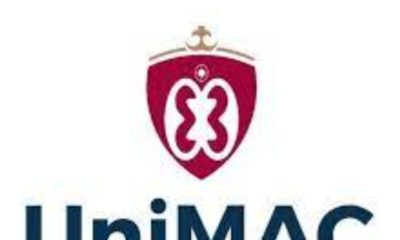Story by; Mary Adwoah Asamoah
In a recent video that quickly went viral, a Ghanaian man living in the Netherlands made a statement that resonated widely: he would choose a Dutch passport over acquiring a PhD from all the Universities in Ghana combined. This statement sparked a lively debate across social media platforms, bringing to light the contrasting realities between the economies of Ghana and the Netherlands and pointing out the advantages linked with holding a Dutch passport.
The Economic Realities of Ghana and the Netherlands
To understand why someone might prioritize a Dutch passport over a PhD, it’s crucial to consider the economic landscapes of both Ghana and the Netherlands.
Ghana, despite its status as one of Africa’s fastest-growing economies, faces significant economic challenges. Ghana faces challenges such as high unemployment rates, particularly among the youth and recent graduates, high inflation rate leading to a high cost of living. According to the World Bank, Ghana’s unemployment rate was 4.3% in 2021, but underemployment and informal sector employment are widespread, often resulting in low wages and job insecurity. For instance, in Ghana, the highest wage given as announced by the Former Finance Minister is sixteen Ghana Cedis a day. Currency volatility further compound these challenges.

In sharp contrast, the Netherlands enjoys a robust and stable economy, consistently ranking among the top globally. According to the United Nation Human Development Index Report in 2021, the Netherland ranked 10th with 0.941 points. With a low unemployment rate of around 3.4% as of 2021, the Dutch economy offers abundant job opportunities, high wages, and comprehensive social security benefits. The country is renowned for its excellent infrastructure, advanced technology, and high standard of living, making it a desirable destination for those seeking better economic prospects.
The Dutch Passport Advantage
A Dutch passport offers numerous benefits that extend far beyond the Netherlands’ borders. Unlike passports from other countries, like the Ghanaian passport, holding a Dutch passport provides numerous benefits to the one bearing that passport.
Research on the Dutch passport has revealed that bearing a Dutch ensures freedom of movement. A Dutch passport provides visa-free or visa-on-arrival access to over 180 countries, including all European Union (EU) member states. This freedom facilitates travel, work, and study opportunities worldwide.
With a Dutch passport, an individual can work and live in any of the 27 EU countries without additional visas or permits, significantly broadening job prospects compared to a Ghanaian passport.
Finally, the Netherlands boasts one of the world’s best social security systems, encompassing comprehensive healthcare coverage, unemployment benefits, and pension schemes. These benefits offer a safety net often lacking in many developing countries, including Ghana.
Why Choose a Dutch Passport Over a PhD?
To better understand the statement of the man “Kofi Jabs”, one need to considers the economic and social advantages of a Dutch passport. Upon extensive research, I realized some factors that underpinned his perspective. For instance, while pursuing a PhD is a long-term investment requiring significant time, effort, and financial resources which can lead to high-paying jobs and academic prestige, the immediate economic benefits of holding a Dutch passport, such as access to better job markets and social services, are more appealing for someone looking to quickly improve their quality of life.
Again, for a man coming a third world, the political and economic stability in the Netherlands offers a level of security often missing in Ghana. The Netherland promises a stable environment with guaranteed social services for all citizens including immigrants. As humans, such assurance of living a good life is appealing.
The Dutch passport also provides the ability to travel freely and work in various countries without bureaucratic hurdles, which is a significant advantage. This mobility can lead to better career prospects and personal growth opportunities.
Finally, the comprehensive social safety nets, excellent healthcare, and high standard of living in the Netherlands contribute to a superior quality of life, which can outweigh the potential long-term benefits of a PhD.
My Take on the Issue
This debate brings to light broader discussions about the disparities between developed and developing nations and the lengths individuals will go to seek better opportunities and security for themselves and their families. While acquiring a PhD isn’t a bad decision in itself, the Dutch passport indeed seems to provide the benefits that acquiring a PhD is intended to provide.
Kofi Jabs’ statement serves as a reminder of the challenges many face and the critical decisions they must make in pursuit of a better life.

 Entertainment2 years ago
Entertainment2 years ago
 News2 years ago
News2 years ago
 News2 years ago
News2 years ago
 News1 year ago
News1 year ago
 News2 years ago
News2 years ago
 News1 year ago
News1 year ago
 Uncategorized2 years ago
Uncategorized2 years ago
 Politics2 years ago
Politics2 years ago











